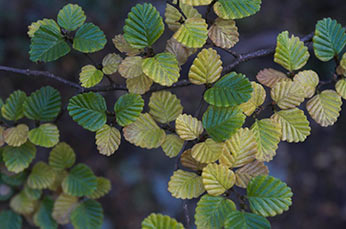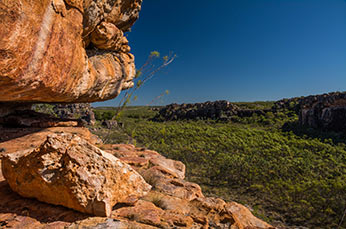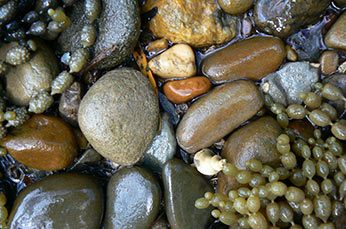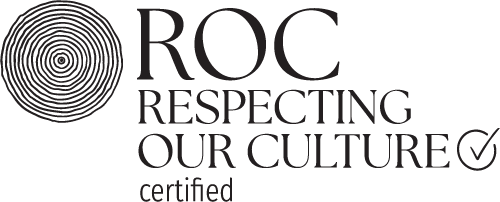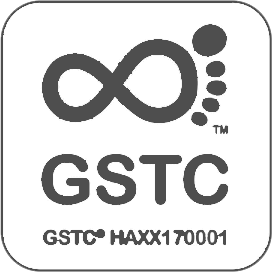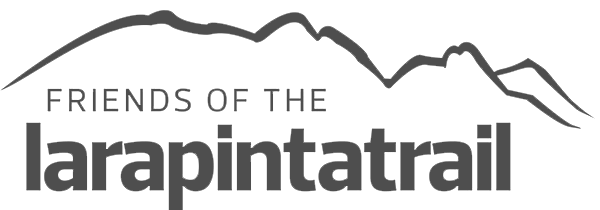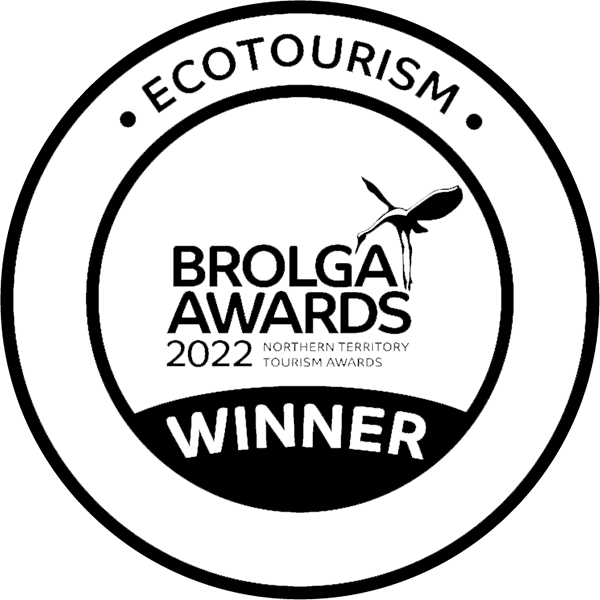FAQ
Booking Terms and Conditions
How do I book a trek with you?
Booking a trek with Trek Tours Australia is easy and can be done online via our website here. Alternatively you can contact us via email for other booking methods. Please note that once you have submitted your online booking form your booking is not confirmed immediately. You will receive a confirmation email within 24 hours after which time you can make other travel arrangements, like your flights and hotel bookings.
Do I have to book online?
No, you can also ring us 1300 133 278 and we can post you a copy of our booking form so that you can fill it in and post or fax it back to us.
How do I check availability for your treks?
Availability for each trek is shown on the individual tour pages. If you have any questions please contact us.
Do I have to reconfirm my trek?
No you do not need to reconfirm your trek, once your trek booking has been confirmed by either the deposit or full payment being made, we will email you a receipt of payment which will have your booking reference number included. Full payment is required 60 days prior to departure. For all of our terms and conditions please see here.
What are you terms and conditions?
Please see here for our terms and conditions.
Can I get a refund if I cancel my trek?
This will depend on the circumstances, please contact us for more information.
Can I transfer my booking to someone else?
This may be possible, please contact us for more information.
When do I have to pay my deposit?
A deposit payment is required at the time of booking to confirm your place on the trek.
When do I have to pay the outstanding balance of my trek?
Balance payments are due 60 days prior to your trek’s departure date.
Will my travel insurance cover me if I cancel my trek?
This will depend on the insurance cover you have purchased. Contact your travel insurance provider for more information.
Are there any hidden extras or surcharges?
No, we love to offer fully inclusive treks that cover all of your food, accommodation, transport and National Park fees. We list on our itineraries all of the inclusions of your trek and some of the things that are not covered like your flights and accommodation pre/post trek.
If you are not sure about what is included in your trek, please contact us.
Can I do part of a trek?
There are occasions when people are unable to join a trek on the day of departure, we may be able to accommodate a later departure day/time depending on the trek. Please contact us for more details.
Can I book a trek through a travel agent?
We do not have any agreements with travel agents and prefer to deal directly with our guests. If you have a preferred travel agent that you use and would like them to book your trek with us, perhaps have them contact us for more information.
Do I get a discount if I book multiple treks with you?
Absolutely! Please contact us for more information about a trek package discount that we can offer.
Clothing and Equipment
What do I need to pack for this trek?
We provide a comprehensive gear list with each itinerary which is downloadable from the tour page.
Do I really need to pack everything that is on the gear list?
Everything that is listed as an essential item should be packed. If you have any questions about what to bring on your trek, please contact us.
Can I bring my own sleeping bag/tent/sleeping mat?
On our treks we supply some/all of these items (depending on your trek), however you are most welcome to bring any of your own gear. Please ask us about the suitability of your own gear for your trek of choice to ensure that you have the correct gear to make your holiday experience the best it can be.
Can I hire any equipment for this trek from you?
Please check with us about the availability and range of hire gear needed for your trek.
What will I need to carry?
For our day pack treks you will need to have a comfortable 25-35 litre capacity pack (with waist straps) which will hold your days water supply, snacks, extra clothing and personal items like your camera.
On our full pack treks you will need to have a full size trekking pack with at least a 75 litre capacity. You will need to carry all of your clothing, personal items, water, share of a tent, sleeping mat, sleeping bag and a share of the groups food.
If you have any questions about the type of pack suitable for your trek or what you will need to carry, please contact us.
How much does everything weigh?
On a full pack trek you will be required to carry a share of a tent which weighs approximately 1.5kg, a sleeping bag weighing 1.2kg-1.5kg, sleeping mat 700-850 grams and a share of the groups food which could weigh between 3-5kgs. This equipment is in addition to water, personal items and clothing.
Do I need walking poles?
Walking poles are a personal choice, most of our guides use them on every trek they lead. We find that they aid with balance and reduce the feeling of having a heavy weight on your shoulders. Having poles that retract and become compact means you will be able to store them in your pack when they are not needed. If you would like more information please contact us.
What are gaiters and do I need them for my trek?
Gaiters come in either long or short formats and are a garment worn as added protection for your lower legs. They are made out of canvas, nylon or a waterproof membrane fabric (Gore-Tex for example). A pair of gaiters stretch over your boots to provide multiple advantages when walking in cool / wet environments and or through terrain that is scratchy and hard on equipment. Gaiters provide extra insulation from the elements, provide extra waterproofing (prevent water from entering into the opening of your boots) and prevent pebbles and terrain debris from entering as well.
High cut gaiters are recommended for all remote treks we offer, in particular the highland treks throughout Tasmania. Low cut gardening gaiters come in handy when trekking in drier environs such as on the Larapinta Trail when it comes to preventing prickly flora effect and loose trail debris entering your footwear. Gaiters can be purchased at any good quality outdoor equipment store around Australia.
What sort of sleeping bags do you supply?
This depends on the trek, for our Larapinta and Tasmanian treks we use light weight synthetic and/or down bags rated to a comfort level of -5 degrees. In the Top End for our Kakadu and Jatbula Trail treks we offer a lighter weight synthetic bag rated to 0 or -2 degrees.
Do you supply sunscreen?
Yes we do, however we encourage you to bring your own supply, especially if you have a preferred brand or type.
Accomodation and Facilities
I am travelling solo, is there a single supplement?
We do not offer single supplements, however please contact us for options that may be available.
What is a swag?
A swag is a waterproof canvas sleeping compartment, that comes with a thick foam mattress and provide warmth and protection from the weather and an amazing outdoor star gazing experience. Our swags are made locally in Alice Springs and are presented with freshly laundered linen, inner sheet, pillow and a sleeping bag rated to a comfort level of -5 degrees. Many of our guests rate sleeping outside in their swags, under the stars, as being one of the highlights of their trekking experience.
Do you supply pillows?
Yes, we supply pillows for your comfort on our day pack walking treks. We do not supply pillows for our full pack treks. Light weight trekking pillows can be purchased in outdoor retail shops. Please feel free to ask us for advice.
Do I have to share a tent/room?
Our accommodated treks are based on twin share (same sex) facilities. Our camping treks are also based on twin share tents however we may be able to offer a single share tent. Please contact us for more details.
Toilets – tell me all about them
Toileting on the trail and at camp is a much discussed topic and area of interest for many! Whilst out walking on the trail we rarely have the luxury of public toilets available for use and so the old adage – ‘every tree is a lava tree’ comes into play. In practice this requires the use of a little trowel or spade that our guides carry (along with toilet paper and water-less sanitary gel). Our guides are adept at finding suitable, private locations. One point to remember here is that water courses like creeks, rivers and streams need to be protected from human waste and so we ask that you find a spot well away from them. At our established semi-permanent camps we use water-less composting toilets. These marvels of water conservation, provide a comfortable seating position and with the use of sawdust and pea straw a smell-free eco-friendly toileting experience. We ask that you do not dispose of anything in the toilet that does not come from inside you 🙂 It is a benefit for the break down of the resulting ‘human manure’ that there is minimal urine content, so we ask where possible and practical that you urinate in the great outdoors prior to making a more substantial deposit on the toilet. Through the miracle of composting (which happens in wheelie bins) all of the ‘human manure’ breaks down over the course of the off walking seasons and forms into a rich and smell free compost.
What if I need to go to the toilet out on the trail?
As per the previous FAQ our guides carry a small trowel/spade along with toilet paper and water-less sanitary gel which is available at any time during your days walk. One thing to remember when leaving the marked trail to toilet, is to leave your pack beside the trail at the point you left it, giving a sign as to which direction you went (just in case you take a wrong turn and get a little geographically confused, we will have a starting point to come and find you:))
Can I have a shower/swim or wash?
Depending on the trek that you are doing, bathing options can include a shower, swim or wash. Generally we are always able to offer a ‘bird bath’ which involves supplying you with a small bowl or bucket containing warmed water which you are then able to take to a private location to wash yourself. For more information about showering and bathing options for your trek, please contact us.
What happens in bad weather?
There is an old saying that goes – ‘there is no such thing as bad weather, just inappropriate clothing’. In saying that we are sure to make our gear lists as comprehensive as possible, to ensure you have the right clothing options whatever the weather happens to bring. In very severe cases of extreme weather conditions we may have to alter or cancel a trek. In these cases we will consult with you every step of the way to let you know about any changes we have to make to our treks.
What about the environmental impacts of your treks?
We are privileged to work in some of the worlds’ most pristine wilderness areas and we have a very strong commitment to preserving and protecting these areas. Trek Tours Australia adheres to minimal impact bushwalking principles and a ‘leave no trace’ policy. To find out more about our responsible travel ethos have a look here.
Insurance
Do I need to have insurance?
Trek Tours Australia recommends all travellers have adequate insurance/cover for their trip, including medical expenses and emergency evacuation (international travellers). In view of the heavy penalties applied to cancelled reservations, Trek Tours Australia strongly recommends suitable travel insurance be purchased at the time the deposit is paid.
Will travel insurance cover me if I cancel my trek?
This will depend on your travel insurance policy, please read the product disclosure statement carefully and contact your insurer for confirmation.
Will travel insurance cover me if I need to be evacuated?
For Australian residents: Under the Federal Government Medicare Act it is prohibited for any domestic travel insurance product to provide any financial reimbursement with regard to medical expenses and ambulance/air ambulance services. We advise our travellers to take specific cover for ambulance through their respective State/Territory ambulance providers or through their own private health insurance.
What level of cover should I get?
This will depend on individual circumstances, please contact your travel insurer for more information about a policy to suit you.
Is insurance how much does it cost?
The cost of travel insurance will vary depending on the level of cover, your personal circumstances and length and location of travel.
Is insurance compulsory?
Travel insurance is not compulsory, however it is very strongly recommended.
Food and Drinks
What sort of food do you serve on your treks?
You’ll love our food. Trek Tours Australia prides itself on preparing fresh and wholesome meals. Our guides are skilled and passionate cooks who love to surprise and delight you with a tasty array of nutritious dishes.
Anyone for coffee? The first meal of the day sets us up for a great walk. We love making a beautiful cup of coffee first thing in the morning, which we gently plunge for your pleasure.
Tea drinkers find that our dozen or so tea varieties offer a cup to delight. A great breakfast sets us up for a big day on the trail. You can look forward to a range of cereals, fresh fruit, yoghurt, toast, porridge and juice.
A great trek starts with having great guides and we think ours are the best in the business. Along with their professional qualifications and our own in-depth training, Trek Tours Australia guides all have that something special, that thing you can’t learn from a book or in a classroom – passion.
Your guides’ magical pack provides an amazing lunch selection of fresh and tasty salads, cold meats, cheese and an array of condiments and dips – served with wraps or rolls in a shady buffet setting.
While you’ve been out hiking the trail, your camp host has been busy preparing another scrumptious three course meal (sorry, no one on our treks loses weight 🙂 Think gourmet cheeses, exotic dips, roasts, pastas, risottos, stir frys, grills, camp oven specials and fresh tasty salads. A surprising sweet finish is always a lovely way to end the day.
We can cater for vegetarian and other medical and allergy dietary requirements with prior notice.
We believe the combination of our delicious food served in amazing places, make our treks a truly tasty experience.
Do you cater for special dietary requirements?
With notice, we are able to cater for most medical and allergy dietary requirements and receive consistently glowing reviews from our guests who have enjoyed their specialised diet on a trek with us. Vegetarian, vegan and gluten free diets are a common dietary requirement of our guests – all of which are deliciously catered for. For remote treks catering can be more difficult for specialised diets, so we appreciate your understanding with catering limitations for these treks.
Is it true that most people do not lose any weight at all on your treks?
Yes, this has been the consistent feedback from our guests on every trek. Sorry 🙁
Do you supply all the food on your treks, including snacks?
Yes we do. Our trail snacks typically consist of fresh fruit, muesli bars, biscuits and cake. Each guide has a very special ‘scroggin’ recipe which will have a mix of nuts, dried fruits, seeds, grains, oh and lots of lovely bits of chocolatey energy boosters!
I would consider myself a very fussy eater, can you cater for my needs?
We have catered for many different and unusual dietary requirements in the past, perhaps it would be best to contact us to discuss your needs before booking.
Do you serve alcohol on your treks?
We do not provide alcohol on our treks – we do supply lots of drinking water, cordials, juices, tea and coffee. You are free to bring along any drinks you wish to enjoy, however please take into account that depending on your trek you will have to carry your alcohol with you (full pack treks), or take into consideration space/cooling capacity available in our trailers or at camp. Please decant any drinks into plastic bottles to reduce the likelihood of spillage and injury. If you have further questions about how much you can bring and any opportunities to stock up on drinks on the trek, please contact us.
Can I bring my own drinks on your treks?
Yes, you are welcome to bring any drinks you would like to enjoy on your trek. Please be aware that there are space restrictions in our trailers and fridges and that food will take priority over alcohol. If it is possible please purchase cans rather than bottles. For full pack treks take into account that you will have to carry your drinks and the empty packaging for the entire trek. Please contact us for more information or if you have any questions.
How much water do I need to carry each day?
For most days on most of our Tasmanian treks we ask that you carry 2 litres of water. On our treks in South Australia, Larapinta Trail and the Top End we recommend carrying 4 litres of water per day. Your guides will brief you about each days requirements prior to starting your trek. We recommend using a combination of a water bladder and a water bottle, in case one or the other springs a leak.
Health and Fitness
How fit do I need to be to do this trek?
Please have a look at our trek grading page which details some trek training that we recommend. If you have any doubts about your ability to undertake a trek with us, please get in touch.
I swim/do yoga/cycle but haven’t done much bushwalking, will I be ok to do this trek?
This will depend on which trek you are considering. For more information about how we grade our treks and some of the fitness training we recommend, have a look here. Generally speaking you do not have to be an experienced bush walker to join one of our treks, if you have a good level of fitness and enjoy the outdoors you will have an awesome time on our treks.
I have a specific medical issue and I wonder if this will prevent me from doing this trek?
Please contact us for more information.
What training should I do for this trek?
Please refer to our Trek Grading page for suggested training activities required for your trek. The more you train prior to this adventure the easier you will handle the terrain and the more you will enjoy this wonderful part of the world.
If you have any questions or concerns about your ability to undertake this trek please contact us.
My doctor has recommended that I do not do this trek, what do you think?
We agree with your Doctor! If you have a medical issue that is not disclosed to us, which subsequently requires you to leave the trek, you may not be covered by travel insurance. In some cases we will need to have a doctors letter certifying your fitness to undertake a trek with us. Please contact us if you are at all concerned about your fitness to undertake a trek with us.
What happens in an emergency medical situation?
Our expert guides are trained as Wilderness First Aid specialists and are used to dealing with every type of emergency that may occur. We have many years of experience as a company with handling any type of emergency and have a comprehensive, detailed operations system to deal with emergency situations, such as medical evacuations and retrievals.
I recently had surgery but feel great, can I book a trek with you?
Love your enthusiasm! We will need to make sure that you are ok to undertake this trek with us, which will mean a doctors letter certifying your fitness to join us.
Do I need to bring my own first aid supplies?
You will need to provide any personal medications required during your trek. If you suffer from blisters it is a good idea to bring along sufficient supplies to remedy these. All of our guides carry a comprehensive first aid kit which is available for use at any time during your trek with us. If you have identified with us that you have an action plan that requires the use of medication for Anaphylaxis, Asthma, Diabetes, Angina or another managed medical condition, please advise us of the type and quantity of medication and ensure you have enough medication with you for your trek. Your guides will confidentially discuss this with you at your pre-departure briefing if required.
Trek Grading
How do you rate or grade your treks?
Please find our trek gradings here.
I walk every day and swim twice a week, do you think I would be ok to do your (insert name of trek) tour?
It is difficult for us to assess your suitability for our trek without meeting you personally. However, by reading through the itinerary and trek gradings you should have a good idea if it is a good fit for you. We also ask for details of your walking/trekking history on the booking form, which helps us to offer a more informed decision of your suitability for your chosen trek.
Can you tell me if I am fit enough to do your trek?
We are able to give you some feedback about some of the health and fitness requirements for our treks and also an idea of what to expect on the trail as well as trek gradings. However in saying that everyone has different levels of what they find challenging or moderately challenging as far as physical activities are concerned. If you are concerned about your ability to undertake one of our treks please contact us for more information.
What is the difference between a full pack trek and a day pack trek?
A full pack trek involves carrying everything you need for the duration of your holiday. A full pack is typically 75-90 litres in capacity and can weigh up to 20kgs once you pack water, a share of the groups food, sleeping mat/bag, share of a tent, clothing and personal items. Day pack treks require you to carry only what is needed for the day which includes water, lunch, some snacks and any personal items you might like to bring (like camera/binoculars/sunscreen etc). A day pack will usually weigh between 5-8kgs and should have a capacity of 25-35 litres and be fitted with a waist strap.
Getting There and Away
What’s the best way to get to (insert name of city trek departs from)?
Our guests choose many different methods to get to the start of their treks, for suggestions please contact us.
Are airport transfers included?
No we do not offer airport transfers. We pick you up from CBD hotels in the city where your trek departs from on Day 1 of your tour. Most airports offer shuttle buses and taxis to make your way to your accommodation.
I have a few days before/after the trek, can you make any suggestions of things to do or see?
Check out some of the options here.
What time does the trek start and finish?
Please refer to your itinerary, however if in doubt please contact us.
Can I arrive on the day the trek departs?
Unfortunately not. All of our treks start early on Day 1 and therefore you will need to arrive at least the day before your trek departs.
Can I book a flight home on the day the trek finishes?
This may be possible however due to unforeseen circumstances we can not guarantee when our treks conclude on the final day. Please contact us if you are planning to book a flight on the last day of your trek.
Can you recommend a place to stay before/after my trek?
Please find our recommended accommodation options here.
Can you store my car whilst I am on a trek?
Unfortunately we do not offer any storage facilities for cars/trailers or caravans. Oh and we are unable to assist with cat or dog boarding either, sorry 🙁
Weather
What is the weather going to be like?
A very popular and frequently asked question! We can certainly offer a guide as to what weather we would expect ‘on average’ for the location of your trek, though to be honest with the way weather patterns have been for the past few years, it really is hard to predict with any certainty what the weather is going to be like. We can predict with 100% certainty that the weather on your trek will change.
What happens if it is really hot?
In very hot conditions we generally start our trekking in pre-dawn hours finishing the days walking before the hottest part of the day. Our guides will be constantly reminding you about the importance of drinking plenty of water and they will also find some swimming options if they are available.
What happens if it is really wet?
Wet weather can put a bit of a dampener on a trek, however with the right gear it is much less of an issue. On our gear lists we recommend bringing a rain jacket with storm hood attached. They must be seam sealed waterproof, breathable fabric (Gore-Tex, Milair or Hydronaute) and we recommend mid-thigh length with full front zip opening which must have a storm flap. We also recommend bringing waterproof over pants (Gore-Tex, Milair or PVC coated nylon). The old saying about no such thing as bad weather, just inappropriate clothing is definitely the case here.
What happens if it is snowing or really cold?
Arctic type conditions can certainly occur on our treks and in some places you might not expect. The temperatures in Central Australia during the midst of winter regularly go below zero. Tasmania frequently experiences snow and below zero temps and the key to staying warm and enjoying your trek as always, is to pack everything on the recommended gear lists that we provide. Your guides will also brief you thoroughly on different layering techniques for the local weather conditions If you have any questions or concerns about what to bring, please contact us for more information.
Do you ever cancel a trek because of the weather?
We would cancel a trek if the forecast is for extraordinary extreme weather conditions or if there has been a so called ‘force majeure’. This may include bushfires, floods, earthquakes etc. Generally speaking we would always strive to create an alternative itinerary so that the trek could still be offered. For more details on our cancellation policy please see here.
Is it true that there is no such thing as bad weather, just inappropriate clothing?
Yes that is true 🙂
Guides
How many guides will there be on my trek
This will depend on which trek you do and how many people in your group. We always have a minimum of 2 professional wilderness guides. Our guides are renowned for their passion of the outdoors and their skills in interpreting interesting highlights along the trek. Not forgetting their gourmet cooking/blister fixing/amazing wildlife spotting skills!
Do I tip my guides and if so, how much?
Tips are not included in the trek price and tipping is entirely at your discretion. If you felt that your expectations were exceeded on your trek and that your guides provided an exceptional service, please by all means offer them a tip/gift or gratuity.
I would love to work for you, how do I become a guide?
Working as a wilderness guide is a specialised and demanding job that requires some rather extraordinary skills. For more information about what it is like working as a guide and some of the qualifications and experience we require, please contact us.
Your guides are awesome where do you find them?
We usually find them way off the beaten track! Our guides love to explore the outdoors and have a passion for sharing wilderness adventures with our guests. They come from a range of backgrounds and previous occupations, most have tertiary degrees and have specialised training in wilderness first aid, cooking, group management and interpretive skills.
Our guides are the reason our business continues to grow every year and why so many of our guests return again and again to trek with us.
I would like to get in touch with my guide, is that ok?
Many of our guests like to stay in contact with their guides post trek to send them pictures or gifts or to let them know about future trekking plans. Please contact us so that we can put you in touch.
What qualifications do your guides have?
Our guides are professionals who have at a minimum completed a wilderness first aid course, obtained driving qualifications which permit them to carry passengers in commercial vehicles and have undergone our own intensive in house guide training. Many of our guides have tertiary qualifications in Outdoor Recreation or Eco Guiding.
Communication and Electronic Devices
Will there be mobile phone coverage?
This will depend on which trek you are doing and which phone company you are using. Generally speaking Telstra offers the widest coverage area for mobile phones in Australia. For more specific information about the coverage you can expect on your trek, please contact us.
Can I get online whilst on this trek?
Once again this will depend on which trek you are doing. Please contact us for more information.
Can I charge my mobile phone/camera/laptop?
You are able to charge mobiles/laptops/camera batteries when travelling in our vehicles and at our semi permanent campsites. We recommend bringing sufficient battery back up options for the duration of your trek.
I need to be able to send/receive a message whilst I am out on a trek, is this possible?
This may be possible depending on the trek you are doing. Please contact us for more information.
What happens in an emergency situation?
Our expert guides are trained as Wilderness First Aid specialists and are used to dealing with every type of emergency that may occur. We have many years of experience as a company with handling any type of emergency and have a comprehensive, detailed operations system to deal with emergency situations.
I have a lot of camera equipment, can i bring it?
Yes by all means, however you will need to carry all that great (and sometimes heavy) camera gear so please make sure that you are physically up to the job! Be aware also that you will need to have appropriate options for keeping your equipment dry and dust free.
I have my own solar charger, can I bring it?
Absolutely.
I am worried that my phone/laptop/camera may get damaged on this trek
It is a good idea to have waterproof, sturdy cases to protect your electronic equipment. Equipment may be damaged whilst luggage is in transit with us and we would also recommend taking out travel insurance to cover any accidental damage.
Feet and Footwear
What sort of boots do I need for this trek?
This is a bit of a tricky question to answer as everyone is different when it comes to what suits their feet and needs on a trek. One thing we always stress is that your footwear should be worn in, not worn out. In practice this means you should never wear brand new boots or shoes on a trek. As for what type of footwear is suitable for your trek with us? Well there is no one size answer to fit that question.
We highly recommend ankle supporting full cut hiking boots. For Tasmanian and South Australian treks we recommend waterproof / inner lined boots. For trekking in Australia’s Top End we recommend boots that are breathable and do NOT have a membrane waterproof lining, as this will add to your feet sweating and not being able to breathe properly in a hot and humid environment. Some points to consider when choosing footwear for your trek – are they worn in but not worn out? is there still plenty of grip on the sole? do you feel comfortable walking in them all day? You should look for a comfortable fit across the balls of your feet and your toes should not press together or touch the end of the boot.
It is important that your heel does not move inside the boot when you are walking. Another thing to consider is packing a spare pair of alternative lightweight shoes or boots which you would be able to use in case of damage or blisters.
What about socks?
Buying good quality socks is a great investment. We recommend firm fitting socks with shaped heels and great cushioning. Wicking – The best hiking socks are high wicking meaning they move moisture away from your feet. This helps to regulate the temperature of your feet but also keeps them dry to help prevent blisters.
Cooling Technology – Some socks will be made from natural and technical fibres constructed in such a way to allow air to circulate and wick moisture away. These highly ventilated socks are ideal for Summer
Merino wool socks are a favourite for many trekkers, there are also good bamboo and wool blend socks that work well for hiking. Trying on a few different brands and types at a good outdoor equipment store is the way to go.
I don’t have hiking boots. I like to wear trail runners/sneakers/sandshoes, is that ok?
Your choice of footwear is entirely up to you. We can only make recommendations about what we consider appropriate for each trek, in Tasmania we highly recommend wearing ankle supporting full cut hiking boots. Some things to consider when choosing trail runners over boots is the level of protection for toes and ankles on loose and rocky surfaces. For more information contact us.
My boots/shoes are really old but super comfortable, will they be ok to wear on this trek?
This is a hard question to answer without seeing your old comfy boots, they must be worn in but not worn out. If the soles are starting to come away and the stitching is frayed, loose and weathered it is probably worth breaking in a new pair and bringing the oldies along as a back up.
I have problems with blisters, do you have any suggestions/will that be a problem on this trek?
Blisters can turn an otherwise amazing trek into a nightmare! Our guides are experts in the care and cure of blisters and will regularly advise you that ‘prevention is the cure’. In practice this means that if you feel a warm spot developing on your feet whilst out walking, you should stop and treat it immediately. If you are someone who is prone to blisters you will probably already know which area’s cause problems, so in the morning before you have pulled on a boot, take preventative measures. Drinking plenty of water during the day and continuing to hydrate at night will help with blister prevention. Many blister sufferers also swear by merino wool between toes and around heels.
Should I bring a spare pair of boots/shoes along?
We recommend bringing along a pair of other shoes/runners or sandals (with heel straps) to wear after your days trekking, these are also good for an emergency back up.
What happens if my boots/shoes are damaged or fall apart on the trek?
Our guides are experts at repairing boots and shoes using ancient wisdom, strapping tape, glue and ingenuity to help keep your footwear operational. We also recommend bringing other shoes/runners or sandals (with heel straps) to use in footwear emergencies.
Other Questions
How do I book one of your treks?
Booking a trek with Trek Tours Australia is done online via our website. Alternatively you can contact us via email for other booking methods.
Please note that once you have submitted your online booking form, your booking is not confirmed immediately. You will receive a confirmation email within 48 business hours after which time you can make other travel arrangements, like your flights and hotel bookings.
Can I organise my own group trek?
We organise many group bookings on our treks and can help you with tailored itineraries and dates to suit your group. Please contact us to get the ball rolling.
How many guests will be on my trek?
Our speciality is small group treks. On average the group size for our treks is 8 with a maximum of only 10 trekkers. We believe that small groups provide a range of benefits to our guests and the environments where we operate. Having small groups mean we see more on the trail, take less time to get up and going in the mornings, avoid the cliques that form in a group of say 16 people and a small group means there is more space and time to relax and enjoy the beauty of the wilderness. Being a small group focused tour operator leads to less of an environmental impact in the fragile wilderness regions where we operate. A big part of our company ethos is to protect and nurture these incredible wilderness regions for the generations to come.
I am not sure i am suited to a group trek
We host many experienced walkers; walkers that we look up to and admire. Some have completed many of Australia’s and indeed the world’s most demanding hikes and treks. Travelling with Trek Tours Australia means you’re on a walking holiday where all the organisation, transport, food preparation, camping, catering and all other logistics are taken care of for you; giving you the time and space to truly relax and properly experience the incredible trail. We employ the most experienced, passionate and knowledgeable guides, who expertly and intuitively guide our small groups. Our guides are adept at ensuring each walker is experiencing these world class treks at their own pace and in their own individual way.
Are children allowed on your treks?
This will depend on the trek and the child, however, for the majority of our treks we ask that all trekkers be at least 16 & must have consent from their parent/s or guardian. Please get in touch to discuss options if you have younger children who would like to trek with you – 1300 133 278.
How can my family contact me in an emergency situation?
Our office telephone is monitored 24 hours per day. Please call (+61) 1300 133 278. Depending on the trek location mobile phone reception may be available, if not, we are able to contact our groups via satellite communication devices which accompany all of our treks.
What sort of vehicles are used to transfer us to and from the start of the trails?
We use Toyota Hiace and Landcruiser vehicles for transporting our guests. Our vehicles are maintained to the highest standard and inspected regularly in order to be commercially registered as passenger vehicles.
How do you justify your advanced eco accreditation credentials?
Being accredited as an Advanced Eco Tourism operator is a honour for Trek Tours Australia and one that is not taken lightly. Responsible travel is the very core of our business – it is the heart that keeps it alive. Trek Tours Australia aims to be at the forefront of this movement and will always continue to improve and innovate in our commitment to the principles of sustainable and responsible tourism. Working together with our guests, suppliers, government and indigenous stakeholders – it is our goal to continuously monitor and improve our performance and to ultimately be regarded as one of the best tour operators in Australia.
Do I need to bring cash on the trek?
Our treks are fully inclusive with all meals and accommodation included. You will need to bring some cash or a card if you would like to purchase alcohol, personal items or souvenirs.
How do i get a job working for Trek Tours Australia?
We would love to hear from you! Get in touch and let us know a bit about yourself, your outdoor guiding experience and qualifications.
Why should i book a trek with you, rather than another company?
Great question! We are a small company that prides itself on delivering quality small group treks. You are never just a number with us, our personalised service starts from your first phone call or email contact and follows every step of the way. What really sets us apart is the quality of our guides who are experts in the field – they are highly trained professionals with a passion for sharing the amazing wilderness areas we trek in. We use and provide only the best outdoor equipment on our treks, our food is sourced locally where possible and prepared lovingly. At the core of our company culture is nurturing, protecting and enhancing the wilderness areas we operate in. If you believe in supporting small businesses who focus on sustainable practices, have good will, a good moral compass and pay attention to the little things – maybe we are the people for you.
Can you recommend a place to stay before/after my trek?
For our recommended accommodation options pre and post trek please check here.
Do you have a Facebook page?
Absolutely. We’re also on Instagram.
Can I purchase a gift voucher for a friend?
Yes, what a great gift! Please contact us for more information.
Do you donate to any charities?
We are proud supporters of some of the charities listed here. We also offer in-kind support to any charities our guides donate to, on a dollar for dollar basis.
What is your privacy policy?
Can I leave or store luggage with you?
Unfortunately we are unable to store luggage, most hotels will store excess luggage for you, for the duration of your trek. Please contact your hotel for further information.
How much luggage can I bring?
If you bring everything on our suggested gear list that would be awesome. We recommend bringing a soft sided duffle bag if you are doing a vehicle assisted/day pack walk, rather than bulky rigid suitcases. For full pack treks, again packing everything on our gear list will ensure you have everything you need for your trek. If you have any questions about what to bring or what to pack it in, please contact us.
Do I get a discount if I book multiple treks with you?
Yes! Please contact us for more details. With so many of our guests returning to trek with us multiple times, we also offer a loyalty discount for future treks.
